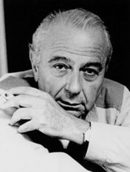
Cefalonia-Myrtos
Το περιοδικό Przegląd (τεύχος 29/25.07) με τίτλο «Η Ελλάδα πιο κοντά στον ήλιο» και υπότιτλο «Στα μέρη όπου ξεκουράζονται οι τουρίστες, επικρατεί ηρεμία και δεν φαίνεται η κρίση», δημοσιεύει τρισέλιδο άρθρο του Bronisław Tumiłowicz, όπου η Ελλάδα προβάλλεται ως δημοφιλής και ασφαλής τουριστικός προορισμός.
Στην εισαγωγή επισημαίνεται ότι την Ελλάδα κοιτίδα της δημοκρατίας, της επιστήμης και των καλών τεχνών, επισκέπτονται ετησίως 18 εκατομμύρια τουρίστες από διάφορα μέρη του κόσμου, καθώς η χώρα προσφέρει ιδανικές συνθήκες για διάφορες μορφές τουρισμού και μεγάλη ποικιλία τουριστικών μνημείων.
Στην ενότητα «Ζεστά, ηλιόλουστα και … φθηνά», σημειώνεται ότι «το τελευταίο διάστημα, αυτή η ειδυλλιακή και άνευ προβλημάτων εικόνα της Ελλάδας επλήγη από τις αναφορές που σχετίζονταν με την οικονομική κρίση και το υψηλό χρέος της χώρας. Όταν έφθασε η τουριστική περίοδος, οι τουρίστες άρχισαν να αναρωτιούνται εάν σε αυτή την όμορφη χώρα, όπου το κλίμα εγγυάται πάνω από 300 ηλιόλουστες ημέρες τον χρόνο, θα αντιμετώπιζαν κάποια δυσάρεστα επεισόδια ή περιορισμούς, εάν πράγματι λειτουργεί άψογα η τουριστική υποδομή […] Ορισμένοι τουρίστες άρχισαν να αναζητούν άλλα μέρη για να περάσουν τις διακοπές τους.
Την στιγμή που οι γεμάτες θέλγητρα τοποθεσίες, που βρίσκονται μακριά από την Αθήνα, και τα απομονωμένα από την ηπειρωτική χώρα καταπληκτικά νησιά, ζουν με το δικό τους ρυθμό. Εξαιτίας κάποιων δυσκολιών οι τιμές αυξήθηκαν, όμως δεν επηρεάζουν τις τουριστικές υπηρεσίες που παρέχονται. Επιπρόσθετα, τα τουριστικά γραφεία έχουν συνάψει συμφωνίες για τις τιμές των ξενοδοχείων από το 2009, γεγονός που συνεπάγεται την σταθερότητα των τιμών των υπηρεσιών. Όσοι επέστρεψαν από τις φετινές διακοπές στα ελληνικά νησιά, επιβεβαιώνουν αυτές τις πληροφορίες . Ήταν υπέροχα – ζεστά, ήρεμα και … φθηνά. Ο τουριστικός τομέας αντέδρασε όπως επιβάλλει η οικονομία της αγοράς».

Naxos island-Chora
Στο δημοσίευμα προβάλλονται δηλώσεις της Γραμματέως Επικοινωνίας του ΓΤΕ Βαρσοβίας, Μαρίας Μονδέλου, όπου σημειώνεται ότι «τα ξενοδοχεία αναμένεται να μειώσουν τις τιμές κατά 10%, συμπεριλαμβανομένων και των τελευταίων αυξήσεων του Φ.Π.Α. Θα καταργηθούν τα τέλη προσγείωσης των αεροπλάνων στα αεροδρόμια, με εξαίρεση μόνο τις πτήσεις εσωτερικού στο διεθνές αεροδρόμιο της Αθήνας». «Όπως διαβεβαιώνει η κυρία Μονδέλου, η κυβέρνηση θα συνεργαστεί και με τους ξενοδόχους και με τους τοπικούς τουριστικούς φορείς για να καλύψει το επιπρόσθετο της παραμονής των τουριστών που θα πρέπει να παρατείνουν τις διακοπές τους στην Ελλάδα, για παράδειγμα λόγω διαδήλωσης ή φυσικής καταστροφής».
Στην ενότητα «Νησιά ηρεμίας», επισημαίνεται ότι τα πολωνικά τουριστικά γραφεία ή οι εκπρόσωποι μεγάλων διεθνών ταξιδιωτικών γραφείων που δραστηριοποιούνται στην Πολωνία και εξειδικεύονται στη διοργάνωση διακοπών στην Ελλάδα, διαβεβαιώνουν ότι η οικονομική κατάσταση της Ελλάδας δεν επηρεάζει άμεσα τους τουρίστες που παραθερίζουν στη χώρα. Οι διαδηλώσεις πραγματοποιούνται στην Αθήνα, ενώ οι Πολωνοί πελάτες παραθερίζουν κυρίως στην Κρήτη, την Κω, την Κέρκυρα, τη Ρόδο, τη Ζάκυνθο ή την Ολυμπιακή Ριβιέρα και επομένως, δεν νιώθουν οποιεσδήποτε ανησυχίες, ούτε διαπιστώνουν οποιεσδήποτε αλλαγές προς το χειρότερο. Εξάλλου τα τουριστικά γραφεία παρακολουθούν την κατάσταση επί τόπου και προβαίνουν στις ανάλογες ενέργειες».
Στο δημοσίευμα, αφού παρουσιάζονται προσφορές τουριστικών γραφείων, σημειώνεται ότι «οι κάτοικοι της Ελλάδας διαβεβαιώνουν ότι οι απεργίες ή οι διαδηλώσεις δεν θα απειλήσουν την ξεκούραση των τουριστών, μάλιστα δηλώνουν έκπληξη όταν πληροφορούνται ότι τα Μ.Μ.Ε. στην Πολωνία ενημερώνουν για γεγονότα που αγνοούνται ακόμη και από τις ελληνικές εφημερίδες και τους τηλεοπτικούς σταθμούς».

Magnesia region
Στην τελευταία ενότητα «Ασφαλής χώρα» υπογραμμίζεται ότι σε σύγκριση με άλλες δημοφιλείς στην Πολωνία χώρες, όπως η Τουρκία ή η Αίγυπτος, η Ελλάδα είναι «η ασφαλέστερη χώρα που προσφέρει ύψιστο επίπεδο ξεκούρασης. Δεν σημειώθηκαν επιθέσεις ή απόπειρες κατά τουριστών. Οι εσωτερικές τριβές των πολιτικών δυνάμεων δεν έχουν καμία επίπτωση στους τουρίστες.
Διαφορετικά παρουσιάζεται η κατάσταση στην Αίγυπτο ή την Τουρκία. Πολύ σημαντική σε αυτή την περίπτωση είναι η στάση των κατοίκων της Ελλάδας – έχουν συνείδηση της δύσκολης οικονομικής κατάστασης, διότι αυτή επηρεάζει τα νοικοκυριά τους και ο κάθε Έλληνας ανησυχεί για το μέλλον του. Όμως ταυτόχρονα οι Έλληνες έχουν επίγνωση ότι από την τουριστική κίνηση στη χώρα τους εξαρτώνται πολλά. Τα έσοδα από τον τουρισμό ανταποκρίνονται στο ένα πέμπτο της εγχώριας παραγωγής».
Καταληκτικά ο Bronisław Tumiłowicz υπογραμμίζει ότι «περπατώντας στους γραφικούς δρόμους των παραθαλάσσιων τουριστικών περιοχών, μπορεί να εντυπωσιαστεί κανείς με την ηρεμία και την παράδοση που χαρακτηρίζει αυτά τα μέρη. Παρά την ελληνική κρίση, οι καφετέριες και τα εστιατόρια εξακολουθούν να είναι γεμάτα ανθρώπους που μπορούν να περνούν εκεί μερικές ώρες, διότι οι Έλληνες – όπως οι ίδιοι παραδέχονται – ξέρουν να αντλούν από τη ζωή τόσα όσο κανένας άλλος λαός. Και γι` αυτό αξίζει να τους επισκεφθεί κανείς».
Filed under: Archaeology, Art, Business, culture, Customs, Economy, Food, Government, Greece, history, Infrastucture, Media, Nature, News in Greek, Poland, Science, Sport, tourism, Turkey | Tagged: additional, airports, and, Archaeology, Art, article, Athens, authorities, Bronislaw, cafes, Climate, Communication, Corfu, costs, Crete, culture, Current Affairs, destination, Economy, Egypt, Environment, Europe, for, Government, Greece, Greek, Gteeks, holidays, Hotels, in, income, infrastructure, International, ISLANDS, προσφορές, προσγείωσης, προορισμός, παραμονή, περίοδος, περιοδικό, πολωνικό, πολωνικά, σταθμοί, τέχνες, τέλη, τηλεοπτικοί, τιμές, τοπικοί, τουρίστες, τουριστικός, τουριστικά, τουριστική, τουρισμός, υπηρεσίες, υποδομή, φυσική, φορείς, χώρα, Έλληνες, Ασφάλεια, ΑΕΠ, Αίγυπτος, Αθήνα, Βαρσοβίας, Γραφεία, Γραφείο, Γραμματέας, Δημοκρατία, Διεθνές, Επικοινωνίας, Ελλάδα, Ελληνικά, Ζάκυνθος, Κρήτη, Κως, Κέρκυρα, ΜΜΕ, Μαρία, Μονδέλου, Ολυμπιακή, Ρόδος, Ριβιέρα, Τύπου, Τουρκία, άρθρο, έσοδα, ήλιος, ασφαλής, αεροπλάνα, αεροδρόμια, αεροδρόμιο, δημοσιογράφος, διαδήλωση, διακοπές, επιστήμη, εστιατόρια, εφημερίδες, ελληνικές, ηρεμία, κρίση, κυβέρνηση, κάτοικοι, κίνηση, κατάσταση, καταστροφή, καφετέριες, καλές, κλίμα, λαός, μνημεία, νησιά, ξεκούραση, ξενοδόχοι, ξενοδοχεία, οικονομία, οικονομική, journalist, local, Magazine, Maria, Media, Mondelou, monuments, News in Greek, newspapers, offers, Office, Olympic, operators, Poland, Polish, Politics, Press, Przeglad, restourants, revenues, Rhodes, Riviera, Secretary, Security, services, strikes, tourism, touristic, tourists, Tumilowicz, Turkey, Warsaw | Comments Off on Προβολή του ελληνικού τουρισμού στο πολωνικό περιοδικό “Przeglad”




































































































